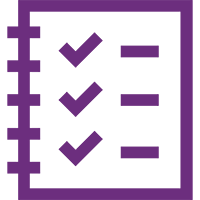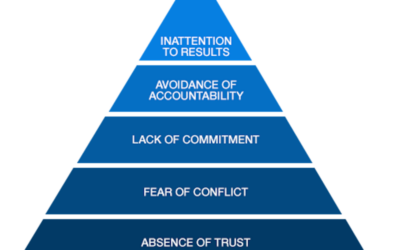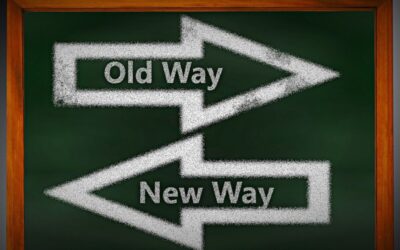We know that diversity, equity and inclusion needs span a vast range: executive coaching for your DEI leaders and DEI allies, coaching others on sensitive topics including DEI issues, and even training for your wider population on how your company approaches diversity, equity and inclusion. We have you covered on all those fronts, and crucially, we have a variety of DEI coaches who can deeply understand the needs and challenges of your employees around these issues.
Our diverse and expert coaches can support the leaders who are grappling with their own experience or those of other DEI employees, provide training in DEI issues for allies and others, or integrate topics of diversity and inclusion into the coaching of employees for whom this is a new conversation.
Challenging coaching calls for those with the compassion and expertise to handle to conversation.

Coaching for DEI Leaders and Allies
Expert, Certified, Diverse Coaches

We coach in the Diversity, Equity and Inclusion Space:
Senior leaders
DEI allies
Group programs that include DEI topics
Workshops on Equity and Inclusion
Keynotes on Ally-ship
Certified, experienced, diverse coaches
Our DEI Coaching Philosophy: Insight + Action = Results
Coach Selection Process
In order to deliver the most value to our clients and their companies, we believe that it’s critical that an executive chooses a coach whose style matches their personality—that’s why we encourage our clients to interview up to three of our coaches to guarantee the best fit.
Diverse, Experienced Coaches
Real Results
Convenience and Flexibility
The Arden Difference
The Power of the Arden Process

Selection
First things first: we set up an initial conversation to help determine the appropriate program for the executive, as well as set up interviews with the three coaches that are the best fit for their needs and goals. In this stage, we are looking to match the executive’s style with that of the coach to create a coaching relationship that delivers maximum results.

Alignment
At the start of each engagement, the coach, the executive, and their supervisor meet to determine the goals of the coaching. Because all of our executive coaching programs are results-driven, it’s critical to set appropriate goals and ensure that the executive, the supervisor, and the company can all realize the benefits of the coaching.

Assessment
When an executive enrolls in a program with the intent to change, measuring the ability and skill level at the outset is a critical first step in setting goals and building a plan to reach them. The coach will select from an array of assessments to select the tools best suited to help the executive gain insight into their unique style and potential areas for growth.

Work the Plan
With feedback from colleagues and a personalized development plan in place, the executive and the coach work through the strategy. They meet regularly to discuss challenges, best practices, and successes, with the coach helping the executive identify and understand their patterns, as well as focus on opportunities for improvement. At the midpoint of the partnership, we once again assess the executive’s progress through a meeting with their supervisor and course-correct, if needed. At the conclusion of the engagement, the executive, supervisor, and coach review the progress and identify any next steps necessary to continue the executive’s growth to ensure a long-term shift in behavior.
Executive Coaching and Leadership Blogs
Yes, Networking Still Matters…
By Nicole LaBeach, PhD, PCC. Change. Change. And more change. With so much of it, we can’t ignore how networking has shifted in the pandemic. Unlike previous times, fewer networking opportunities...
Navigating Change: Lessons Learned from Sailing
By José Morales, MBA, MS, PCC. When a sailboat tacks or jibes — meaning it changes direction relative to the wind — drag is increased and often speed is lost. Tack too late and you could cause a...
3 Tips for Leading Your “Forever” Remote-Hybrid Team
Leaders and managers at companies everywhere are adjusting to the reality that remote and hybrid work is likely to be a permanent aspect of our work-world. A recent survey by Owl Labs found that...
How to Be an Effective Coach for Your Direct Reports
By Laura Hansen. MA, PCC. One important competency for today’s leaders is successfully developing your direct reports through coaching. When you have decided that coaching is an appropriate...
Does Your Team Have Trust?
By Kelly L. Ross, MS, PCC Does your team have trust? When the topic of trust comes up with leaders often the answer is, ‘not so much.’ Or, ‘in some situations.’ How can a leadership be effective in...
A Leader’s Gift of Kindness
On this Christmas Day, let’s consider leadership and the gift of kindness. As you move up the leadership ranks, expectations about your ability to engage with others increase too. But let’s be...
10 Tips for Coaching Employees: The Leap from Contributor to Manager
By Barbara McAllister, MS, MCC. I don’t know about you, but I have found that some clients are very challenged transitioning from individual contributor to manager. I understand this, because in my...
How Will You Grow Your Leadership Skills?
It’s common to take stock of things and consider meaningful change at the end of the year. And with good reason. We naturally gravitate toward self-assessment, change, and new directions when we...
Coaching and the 3 Immutable Laws of Change
By Andreas Schumacher, PhD, PCC. Executive coaching at its core is designed to bring about meaningful and sustainable change towards optimal functioning. Through thoughtful reflection, new insights...









